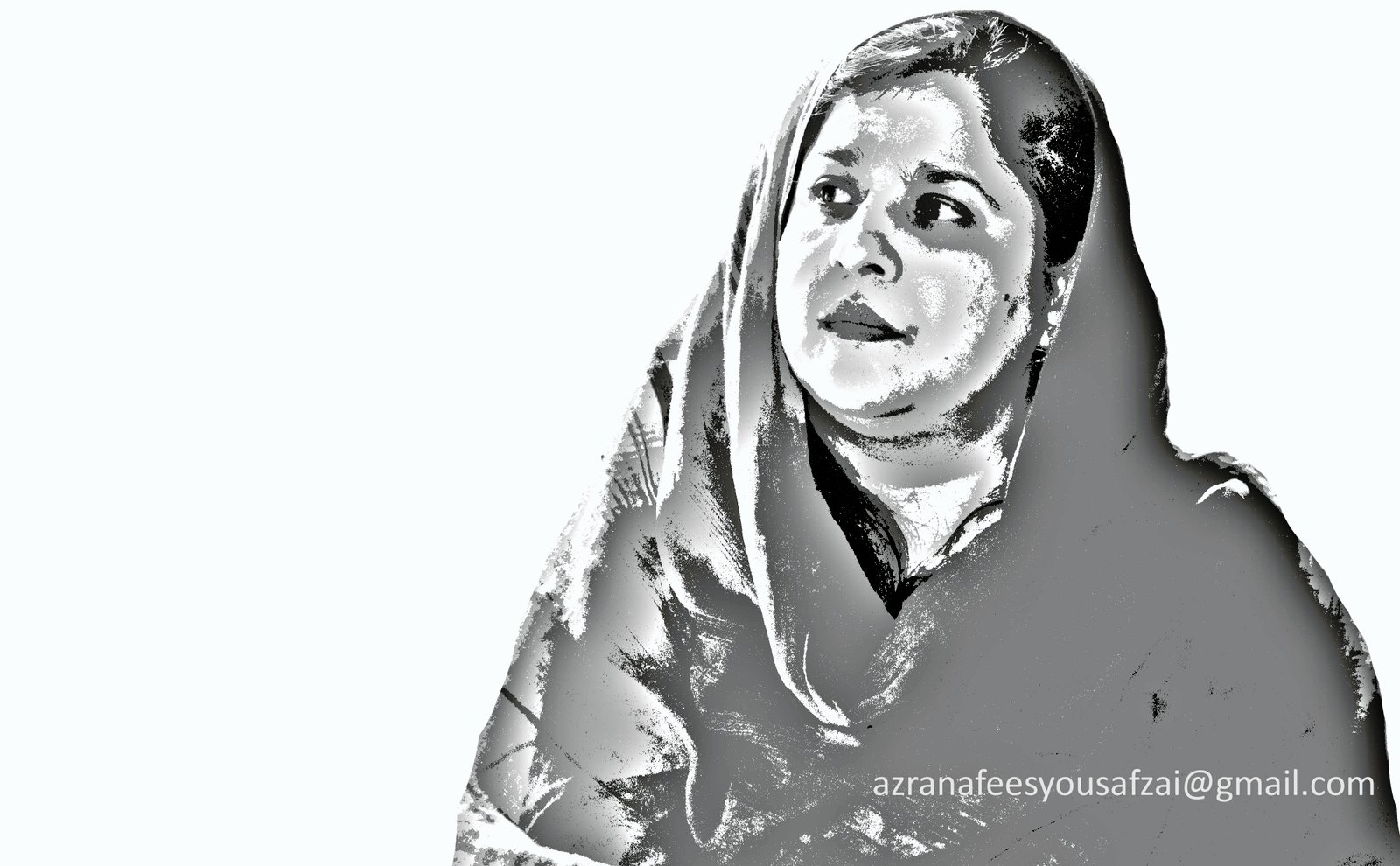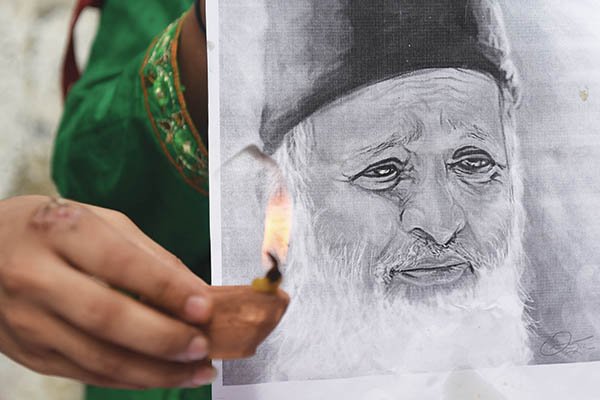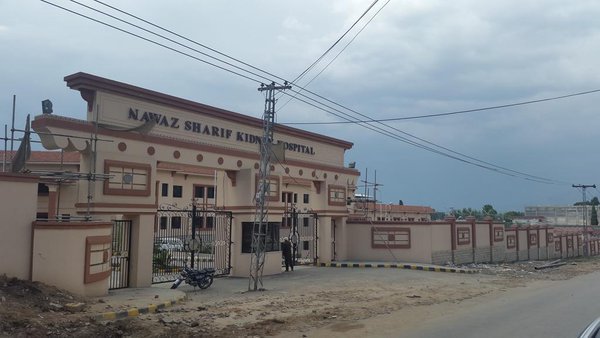By Azra Nafees Yousafzai
Demands for comprehensive reforms to repeal the draconian and inhuman colonial-era Frontier Crimes Regulation and to restore fundamental human rights to more than 7 million inhabitants of FATA have gathered momentum in the last few years.
During the last decades several efforts and initiatives have been started to introduce much needed reforms in the tribal areas; but it appears all such initiatives actually aim at perpetuating the same old barbaric system by cloaking them with fancy new names and marginal changes without touching the main discriminatory clauses. The case of women rights is a good example. While there is little doubt about the arbitrary and highly discriminatory nature of the existing system based on FCR, the fact is that women remain the most affected segment of FATA population, whose suffering from these inhuman and horrifying laws is neither talked about nor acknowledged in any reform effort, including the recently publicized reports of the FATA Reforms Committee constituted by the PML N Govt after 2013 elections.
According to the report made public by the Fata Reforms Committee, the draconian code of the Frontier Crimes Regulations is intended to be replaced with a quasi-judicial system called the Tribal Areas Rewaj Act 2017, which is a mixture of traditional jirga and contemporary judicial system. The proposed reforms seem to be mere eyewash and little more than a dressed up version of the previous system. Most of the proposed reforms are cosmetic in nature and would not have any significant and long-term impact on the life of people living in FATA. The reforms essentially retain adjudication of all cases through the informal arbitrary Jirga System, which is highly flawed and violates fundamental rights. The proposed system allows Jirga and local court decisions to be challenged in higher courts, but does nothing to provide modern and a just judiciary to the area. It also overlooks that justice and fundamental rights have to be ensured at the grassroots level and accessible to the lowest, most poor segment of society and not only privileged segments.
In a society that only feeds off hyper masculinity, and that views a woman’s voice, visibility or choice of any sort as a taboo, this act will be misused in many cases and there is possibility of basic human rights violation, particularly those of the most vulnerable segmen: the women of FATA. Rewaj is not a written or a codified law, rather it is a set of unwritten principles and traditions widely held and practiced by the Masharan in administration of justice in Jirga. These Jirgas are exclusively constituted of male members called Maliks or Masharan and female representation is unimaginable.
With traditional patriarchal notions deeply embedded, there is little hope of any women getting justice from such Jirgas or local courts in cases involving honour or property rights. Hence for more than half of the population of FATA, these reforms mean nothing. The formal promulgation of the Riwaj Act is likely to lead to further stagnation of social and human development in FATA. These half-hearted and ill-conceived so-called reforms will cause disappointment and unrest among the women of FATA who are pro-progress and can potentially play a major part in bringing much needed social change to the areas. The world is moving towards achieving new milestones related to human rights, women’s empowerment and socio-economic justice, but the Rewaj is bitterly opposed to these important factors of human development and social progress and is against the hopes and aspirations of the women.
Although the report holds that any decree violating human rights will be considered null and void, but it cannot be ignored that the Rewaj Act will legitimize many detestable crimes that target women such as ‘swara’, ghag, walwar and honour killings. On the one hand, there are efforts for improving gender-equality and protecting the women at the national leve,l but on the other hand the Rewaj Act is opposed to all such efforts. It treats woman as a tool for dispute settlement. In certain cases, Rewaj allows one family to hand over a woman to another family as a compensation for life losses or even physical injuries. The Jirga system is highly inequitable and discriminatory against women. There is not a single case where a woman fought her case through Jirga. Rewaj is vague about a woman’s right to even become a party in a case. Under the Rewaj, whatever a deceased person’s belonging solely belongs to the male members of the family. The Rewaj is, in this way, repugnant to the Constitution as well as Qura’an and Sunnah, yet the proposed reforms retain it rather codify them by disguising these as reforms.
In the reforms process, input from women, who constitute more than 50% of the population, has been completely ignored. Neither were any women part of the reform committee nor has any discussion or debate been held with tribal women to ascertain their views on the reform recommendation impacting their lives. It is important to note that there is a definite awakening in the tribal women and they are gearing to stand up not only for their fundamental rights but also to play their due role in bringing the tribal areas out from the colonial era into the modern world where women are equal partners in socio-politico-economic life and not just a mean of procreation. They want to be protected by the constitution, have access to modern courts and have women representatives speak for them in an empowered legislative body. They want modern hospitals and modern schools. These women do not want to cling to old, out-dated customs, and many of them are fully aware women who can go so far as to threaten mass protests if they are not treated as “equal citizens”.
The constitution of Pakistan gives women of FATA equal rights as citizens and tribal women will resist any half hearted/veiled reform effort that treats them as unequal, discriminates against them or keeps them from progress. We ask for a complete and proper merger between FATA and KP – nothing transitional, nothing halfway; and implement all laws that are applicable to the remaining 180 million of Pakistan’s population. It requires that no special law be drafted for the region, only that the Rewaj Act be repealed and the constitution extended to all the Agencies of the tribal belt. What the women of FATA really need now is to be considered a part of Pakistan, and not to feel colonized by it.
It’s also a worth considering the question as what Fata will become under the Rewaj rule? If the proposed Rewaj Act legitimizes the tribal customary law, how will the tribal people be mainstreamed and integrated with the population of KP and Pakistan? The proposed Rewaj Act thus neither mainstreams FATA nor merges it with KP. Even if it is called a merger, the people in that province will be yoked under three different and often contradictory justice systems — the Pakistan laws, Nizam-i-Adl in Malakand Division and the Rewaj Act in the tribal agencies.
So let’s not be carried away with sugar-coated fancy terms and phrases. No amount of juggling with words can hide the fact that the Rewaj Act will legitimize deviations from the fundamental rights enshrined in the Constitution of Pakistan and will discriminate between the people of Fata and their compatriots within the province of KP and outside it.
The writer is an educationist, Social & Peace Activist and a Freelance writer. She is the Chairperson of Hacem Foundation.
Azra can be reached at azranafeesyousafzai@gmail.com





